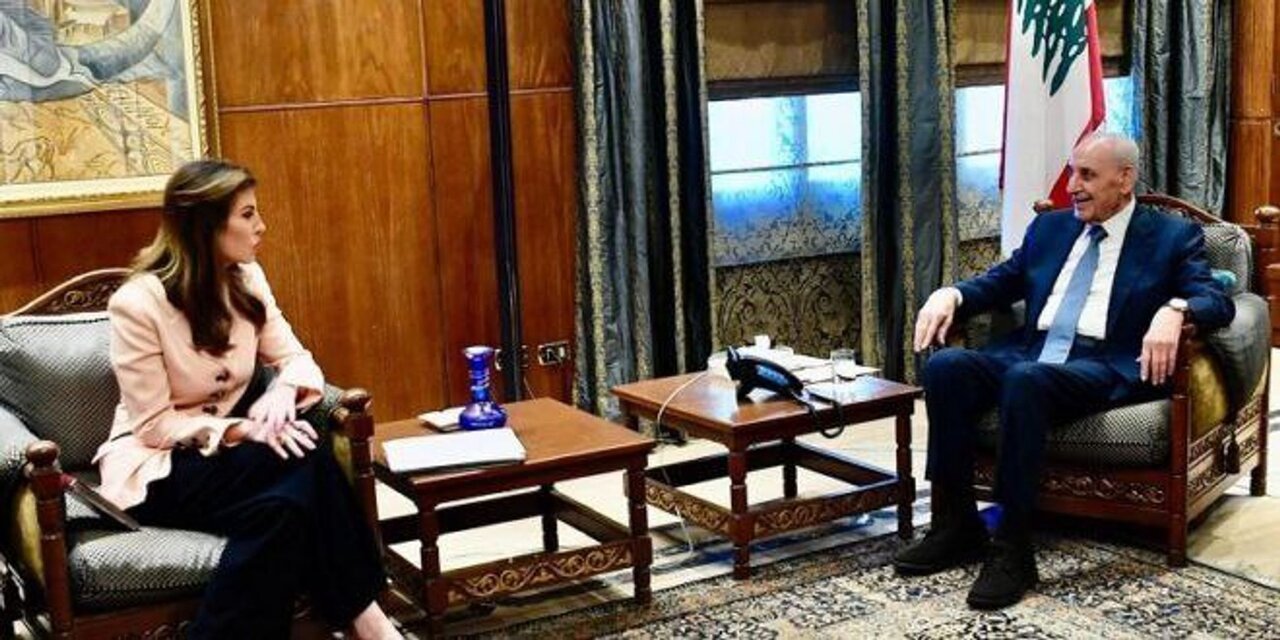Lebanon after Ortagus’ ill-fated visit

BEIRUT — The detailed discussions of Morgan Ortagus, the US Deputy Envoy to the Middle East, during her ill-fated three-day visit to Beirut, forced an urgent meeting between heads of Lebanon’s executive and legislative powers, especially those related to the completion of the implementation of UN Resolution 1701.
The meeting, which brought together President of the Republic General Joseph Aoun and Speaker of Parliament Nabih Berri, also addressed a series of legal amendments — banking in particular — to ensure that they are passed with consensus before embarking on any negotiations with the International Monetary Fund or other international financial institutions that are a source of funding (whether through loans or grants).
As such, the discussion focused on the background of the so-called reform laws addressed by Ortagus. She spoke on behalf of the international community and donor institutions.
Trump’s envoy, who complained about what she deemed slow process, said Lebanon must first address the lifting of bank secrecy (with a retroactive effect of 10, not 3 years as proposed by the Lebanese government).
She further demanded disclosure of operations involving opaque poles that took place between 2015 and 2019.
The second item Ortagus pressed for was the restructuring of the banking sector on a basis consistent with the global banking system, claiming that Lebanon's reliance on a cash economy made it an excellent haven for money laundering and circumventing international financial regulatory filters.
In addition to the above, Ortagus set additional urgent items related to reforming the judiciary, controlling border crossings and customs, and cleaning up the Ministry of Finance.
In a television interview, Ortagus discussed what she raised with senior Lebanese officials regarding administrative, financial, legal, security, and military reforms — as she put it — especially the fate of all “illegal” weapons, whether Lebanese or Palestinian.
However, military and security reform cannot be realized unless the fate of the Israeli occupation of southern Lebanon is resolved, and Ortagus received a unified Lebanese position on this issue.
In assessing Ortagus’ recent visit, observers believe that the tour was flexible in style only, while in substance it was a repetition of the previous ones.
Those observers maintain that the reason behind her calm and flexible manner, this time, is that Ortagus is in the same situation as other Trump administration officials who entered the field of diplomacy with no prior experience, which caused her to violate several diplomatic norms during her first tour (noting that during her meeting with Berri, Ortagus hid her Star of David necklace).
Other observers attribute the adoption of a flexible and reserved approach to the level of tension between Washington and Tehran, which had reached its peak during her first visit, while her recent visit came ahead of the indirect negotiations under the auspices of the Sultanate of Oman.
Nevertheless, Ortagus stated that the deadline given to Beirut is not open-ended in the sense that the rapid developments in the region may not be in Lebanon’s favor.
